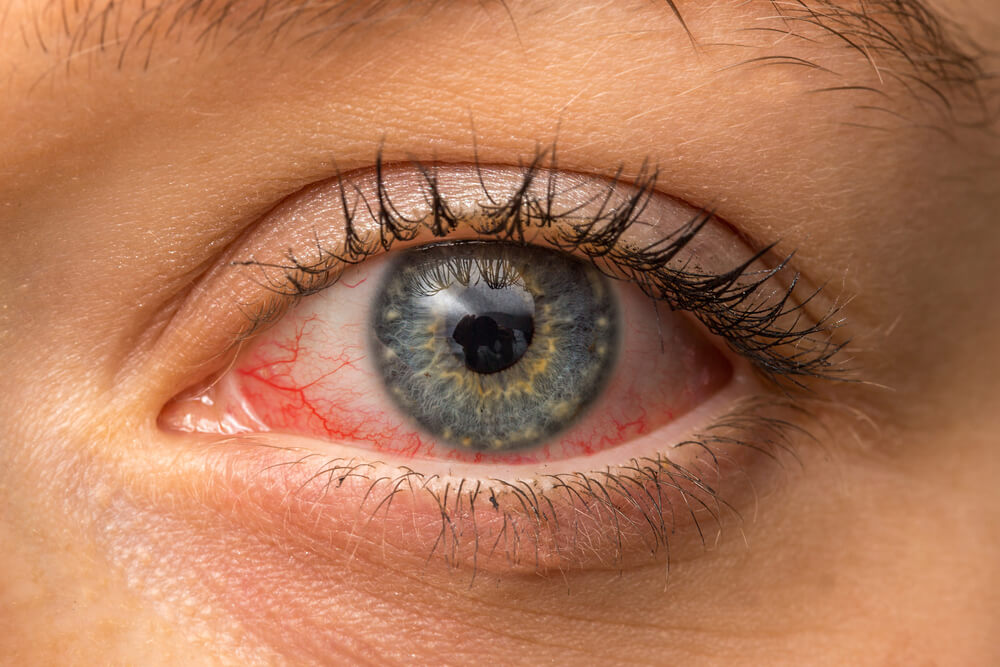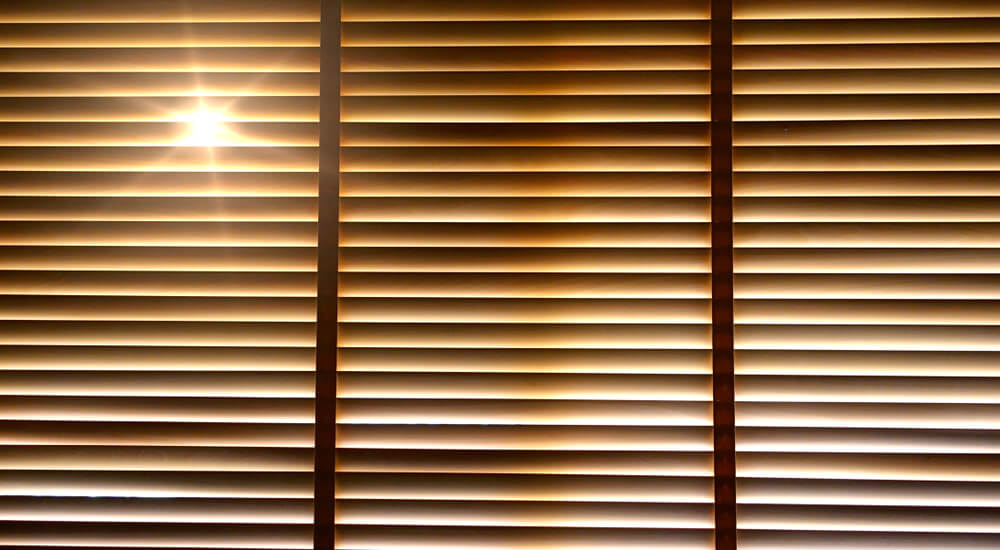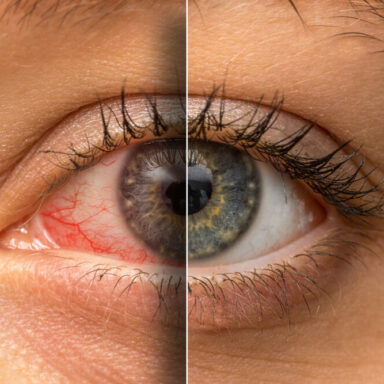What is Photokeratitis? Sunburned and itchy eyes in summer
Posted on 26 April 2022

Summer’s almost here… Dig out your swimsuit, slap on some sunscreen and don’t forget your sunglasses.
We’re all familiar with sunburn – but did you know that your eyes can get sunburned too?
Just as too much sun can leave our skin pink and itchy, overdoing it on UV rays can leave our eyes dry, red, itchy, swollen and sore.
Fortunately, just like sunburned skin, sunburned eyes will normally heal within a day or two.1
But that doesn’t mean it isn’t painful while it lasts.
Here, we tell you all about photokeratitis – pronounced photo*ker*a*tie*tis – to give sunburned eyes their rather grand medical name.
We’ll look at why it happens, what the symptoms are, how to treat it – and how to prevent it from happening again. (Yep, that’s where the sunglasses come in!)
What is photokeratitis?
When too many UV rays temporarily damage the cornea, the clear outer layer of the eye, making it inflamed and sore, it is called photokeratitis.
If you are squeamish, you may want to look away now because, simply put, photokeratitis is…sunburned eyeballs!

The conjunctiva, the clear tissue that covers the whites of your eyes and the inside of your eyelids, can also be damaged.1
Causes of photokeratitis
Most cases of photokeratitis are caused by overexposure to the sun’s UV rays. This needn’t be from looking directly at the sun (although that’s never a good idea – as we’ll see below), even a spot of sunbathing under a beach umbrella could be troublesome. Sand can reflect 25% of the sun’s rays, meaning that even if you are sitting in the shade, your skin – and eyes – could be burned.2

Other sources of UV light that can damage our eyes range from sunbeds and arc welding equipment to the basking bulbs used to keep iguanas and other pet reptiles nice and cosy.3
Fun fact
You needn’t be lazing on the beach for the sun to burn your eyes – it can happen while you are whizzing down the slopes too. Snow is even more reflective than sand4 and when our eyes are burned by UV rays that have bounced off snow or ice, it’s known as snow blindness.
What about looking directly at the sun?
Staring straight at the sun, say when you are watching a solar eclipse, can cause photokeratitis. But it can also cause more serious and longer-lasting damage by burning the retina, the delicate, light-sensitive layer at the back of the eye.5 In other words, your mum was right – you shouldn’t look right at the sun!
The symptoms of photokeratitis
Just as when you sunburn your skin, the symptoms of photokeratitis usually don’t develop until a few hours after the damage has been done.5 The symptoms of photokeratitis include:
- pain
- red or bloodshot eyes
- itchiness
- watery eyes
- blurry vision
- a gritty feeling
- swelling
- sensitivity to bright light
- headaches
- seeing halos
- colour changes in vision (rare)
- temporary vision loss (rare)
The longer you’ve been exposed to UV light, the more severe your symptoms are likely to be.
How to treat itchy and sunburned eyes
If you think your eyes are sunburned, the first thing to do is get out of the sun – go indoors and stay in a darkened room if you can. If you wear contact lenses, take them out straight away, to stop them from irritating your eyes while they heal.5

This might all sound a bit scary but the good news is that photokeratitis usually goes away on its own within 24 or 48 hours, depending on how badly your eyes are sunburned.6
It can be quite painful at the time though, and frustratingly itchy, but there are lots of things you can do to help you feel better as your eyes heal.
Treating and managing sunburned eyes1
- Close your eyes and cool them – and yourself – down by placing a cold flannel over them.
- Resist the urge to itch! It’s going to be hard but try not to rub or scratch your eyes because it could make them worse.
- Apply artificial tears – lubricant eye drops – to ease irritation.
- Take an over-the-counter painkiller such as paracetamol or ibuprofen, if you need to.
When to see a doctor
If your eyes are still sore after two days, or if you experience a loss of vision, ask your optician, ophthalmologist, GP or pharmacist for help. They might give you antibiotic eye drops, if they think the damaged eye tissue might become infected, or special eye drops called cycloplegics to help with the pain.7
Top tip
If you have eyelash extensions, ask your doctor if it’s better to leave them on or have them removed while your eyes get better.8
Other causes of itchy eyes in summer
Of course, sun exposure isn’t the only culprit when it comes to red, itchy eyes in the summer.
- If you get some sunscreen in your eyes by mistake, try flushing it out with clear, running water.6
- Remember your goggles when you cool off in the pool, to prevent chlorine from irritating your eyes.
- Atishoo! Hay fever is normally worst between March and September but wraparound sunglasses can help keep pollen out of your eyes.
- Air conditioning can provide welcome relief on a hot summer’s day but, if you have dry eye, it can make it worse. Using a humidifier can help.
How to prevent sunburned eyes in the summer

Photokeratitis doesn’t usually cause any permanent damage to the eye but the damage done by UV rays builds up over time and can increase the risk of several conditions, including cataracts9 and squamous cell carcinoma, a type of skin cancer.10
Luckily, protecting your eyes is easy – you just pop on your sunglasses. Look for sunnies that block at least 99% of the sun’s UV rays.
The less UV that hits your eyes, the better protected you’ll be, so how about trying on some wraparound pairs for size? Look out for the CE and BS EN ISO 12312-1:2013 quality marks too.11 A wide-brimmed hat will top off your look and provide a bit of extra shade from the sun.
Top tip
If you wear contact lenses and spend a lot of time outdoors, why not consider switching to UV-absorbing contacts to help shield your eyes from sun damage?1
What if I’ve burned my eyelids?
If you have photokeratitis, your eyelids might be sunburned too – sometimes they can look swollen and pink. The treatments are very similar: rinse a flannel in cool water and place it over your eyes, take paracetamol or another over-the-counter painkiller, if you need to, and take a rest from your contact lenses.12



